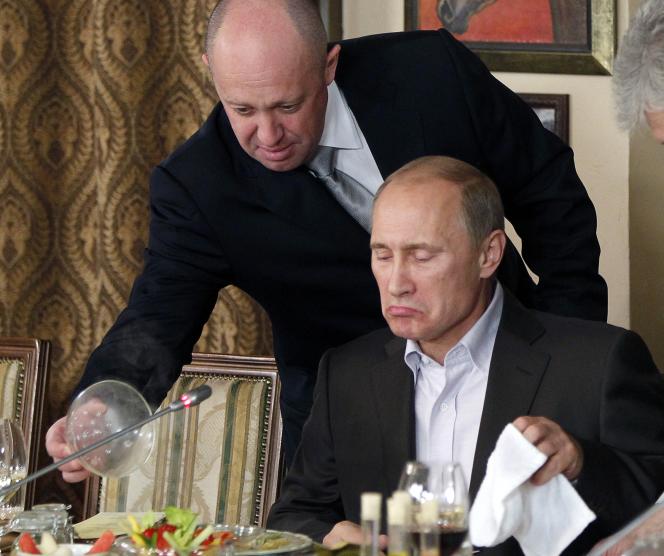When troops in military uniform appeared in Rostov-sur-le-Don on the evening of Friday, June 23, there was doubt. Who are these men, wearing a silver adhesive tape on their right arm, who are taking control of this Russian city of more than a million inhabitants? The uncertainty quickly dissipated with the appearance on the scene, the next day at dawn, of the boss of the Wagner militia, Evgueni Prigojine, posing between two trapped Russian army generals. A method already proven: in February 2014, Vladimir Putin had used the same subterfuge by dispatching special forces without insignia – the “little green men”, as they will be dubbed – to take over Ukraine’s Crimean peninsula.
Between the businessman who became a warlord and the Russian president, the proximity is not only a matter of tactics. For more than twenty years, the two men have maintained close relations on the basis of a shared agreement: the enrichment of one, the use of a hybrid force for the other. Before becoming a threat, Evgueni Prigojine, 62, indeed constantly acted in the shadowy areas of power that the head of the Kremlin loves.
In Ukraine, in Syria, on the African continent, in South America, with arms, in Europe and in the United States, with its troll factories, he zealously served the interests of the Russian president. “Putin agreed to outsource some state functions but did not legitimize Prigozhin himself (…)which would be in total contradiction with Putin’s conception of complete and coordinated power.noted, in February, political scientist Tatiana Stanovaya on the Carnegie Center website. “In Putin’s worldview, resources such as private military companies [illégales en théorie en Russie] should serve to strengthen the position of the state, not to weaken it.she added.
“No official status”
Less than three months before the armed rebellion led by Evgueni Prigojine in Russia, the Head of State again congratulated, in a press release, « the Wagner assault groups (…) for the completion of the Artyomovsk liberation operation [appellation en Russie de Bakhmout] »promising them “state decorations”. Never, publicly at least, has he reacted to the increasingly crude and violent attacks of the boss of the Wagners on his defense minister, Sergei Shoigu, yet a close friend.
Prigozhin is not ” a friend “. Asked several times, Vladimir Putin kept repeating it. “I know him, yes (…)but it has no official status”, he said to the American channel NBC in 2018. Without being an intimate, the warlord had nevertheless managed to make himself indispensable to the Kremlin, developing over the years his contacts at the highest level: at the presidential administration with his leader, Anton Voïno, in the middle of the oligarchs with the powerful Kovaltchouk brothers, in the region with the governor of Tula, Alexeï Dioumine, ex-general and chief bodyguard of Putin, and even in the ranks of the army with, in particular, General Sergei Surovikin, involved in the 1991 putsch attempt in Russia. While some have recently distanced themselves from the warlord, many have played the role of intermediary with the head of the Kremlin.
You have 53.27% of this article left to read. The following is for subscribers only.
